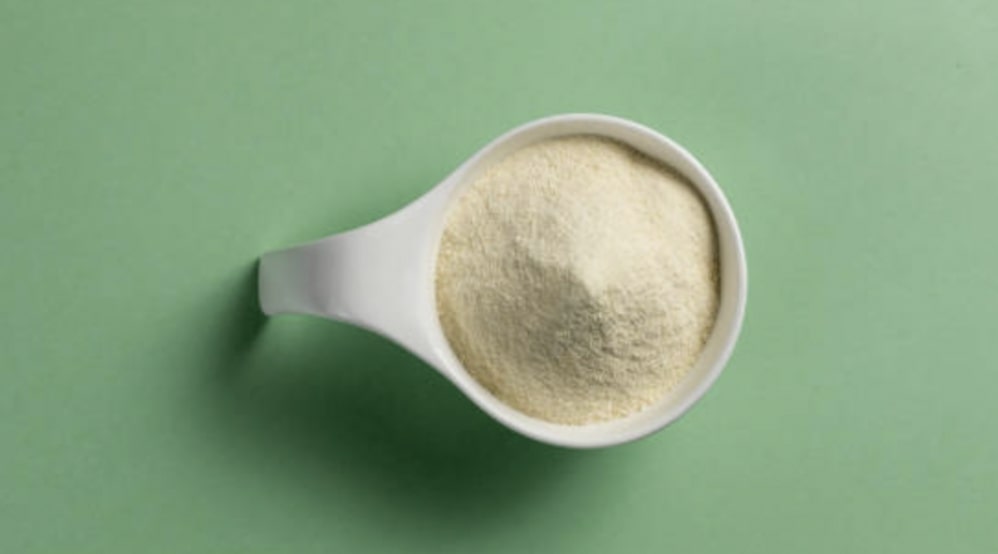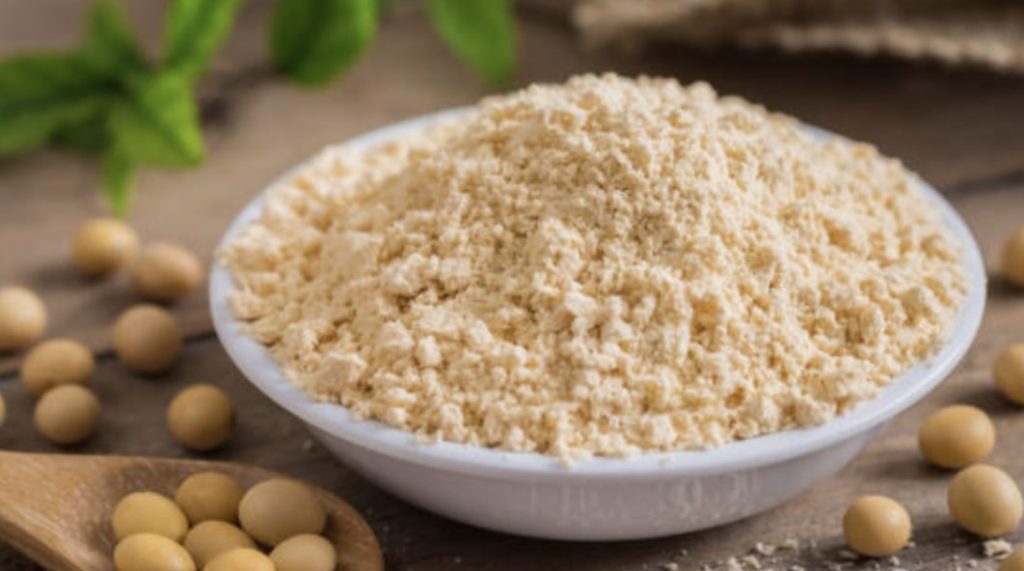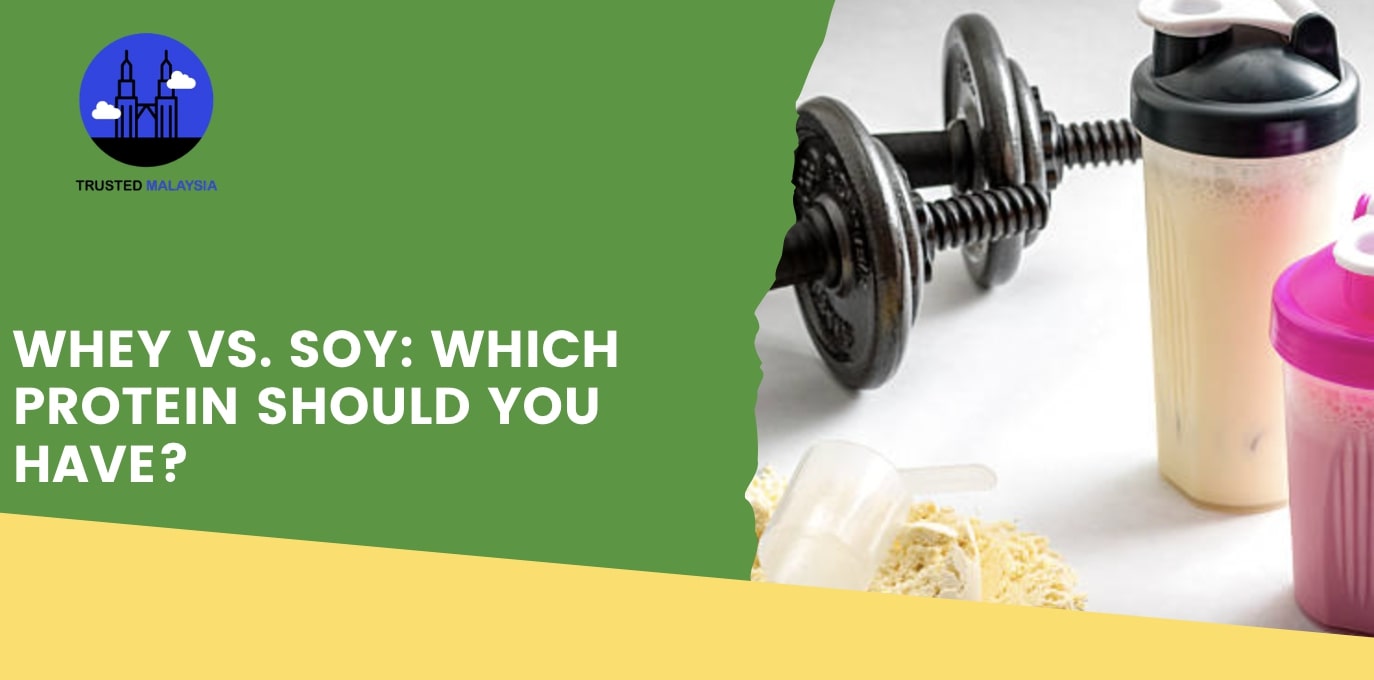Whey vs. Soy: Which Protein Should You Have?
When it comes to building your muscles and helping them recover, losing weight, or just upping your protein intake, there are two organic proteins you can choose from: whey or soy.
Given that these ingredients are natural and have a variety of health benefits, these two proteins can go head to head with each other.
So, here in this guide, we’ll enumerate the benefits of whey and soy. And then, we will help you decide which of the two is the most suitable for you to use for your health and/or fitness goal.
What is whey protein?

Simply put, whey is a watery fraction that’s rich in protein. In the process of making cheese, a liquid is derived from pure milk that has been separated and curdled.
The liquid then is dried to form whey powder, while the curd part is used for making cheese.
As you can see labelled on whey powder jars, the two common types are whey protein isolate and whey protein concentrate. The first one has its lactose or milk sugar taken out, whereas the second can retain a small amount of it through one of two processing technologies.
The Benefits of Whey Protein
There are a lot of benefits to using whey protein, most of which are listed below:
- It has a high amount of protein
Whey protein isolate is an excellent source of protein since, after processing, it’s still left with 90% protein, compared to the slightly lower 70% to 80% in whey protein concentrate.
- It helps you lose weight
Using whey can help you lose weight because it speeds up your metabolism and makes you feel full longer.
And also, it maintains your muscle mass while you’re slimming down. As a result, your body will still look toned and fit, and all your efforts in your strenuous workout won’t be easily lost.
- It helps lower blood pressure
According to many studies, consuming dairy products, including whey, will help lower people’s blood pressure levels and therefore, their risk of heart disease.
- It can help treat type 2 diabetes
Type 2 diabetes is a chronic condition of having a high sugar level and impaired insulin function. According to Pub Med, it affected 2.8 million people in Malaysia in 2015.
Whey has been shown to treat type 2 diabetes by raising the person’s insulin level, which is responsible for keeping the blood sugar in cells within a healthy limit.
- It enhances the body’s antioxidant defence
Whey protein contains a lot of nutrients like cysteine, for one. It is the protein that gives you healthy skin, hair, and nails.
Also, it’s part of an amino acid chain that produces glutathione—an antioxidant fighting cell damage caused by free radicals that cause cancer, heart disease, and other illnesses.
- It reduces swelling and inflammation
Inflammation is the body’s defence mechanism at work that occurs when you are injured or sick. It can be short or long-term; the latter of which can signify or lead to a serious health problem.
Fortunately, evidence points out that consuming 20 grams of whey protein in food or a drink per day reduces C-reactive protein, which causes inflammation in the body.
What is soy protein?

Whereas whey is an animal-based product made from cow’s milk, soy protein is plant-based, being made from soybeans.
Soy protein isolate is produced by using soybean flakes without fat, washing them in alcohol or water, and then dehydrating them to turn them into powder. It is healthy in that it doesn’t have any cholesterol and only has a bit of fat and sugar.
On the other hand, the production of soy protein concentrate uses a defatted meal and focuses on removing soluble carbohydrates and flavour compounds. Unlike soy protein isolate, it retains most of the dietary fibre of the soybean after being processed.
The Benefits of Soy Protein
Look below to see the benefits of consuming soy protein in food and beverages:
- It is plant-based
Being plant-based, soy protein fits vegetarians and vegans. It can be incorporated into a lot of foods like baked foods and cereals.
- It is lactose-free
Need to up your protein intake but are lactose intolerant? No problem; you can try soy protein, as it doesn’t use any dairy products.
- It can help manage cholesterol
The Journal of Nutrition has concluded in their study that using soy protein helps to lower the LDL or bad cholesterol and raise HDL or good cholesterol.
Having high LDL cholesterol can lead to artery blockage that increases a person’s chance of having cardiovascular disease.
- It has a lot of nutrients and amino acids
Soy contains all the essential and branched amino acids that form proteins. It is also high in calcium, making them great for strengthening your bones and teeth.
- It’s digested easily
Also, soy protein can be digested easily. Just add the powder to your smoothie, shake, or juice bottle, shake it, and drink.
Conclusion
Soy would be a better option if you have dairy allergies or are lactose intolerant. It contains phytonutrients that help to prevent or fight certain diseases and conditions.
However, it can taste a bit nutty and have a sort of a bitter aftertaste which some people don’t like.
If dairy is not a problem for you, go with whey, as it has a higher protein to weight ratio than soy so it can definitely help you work on your strength and muscles as well as lose weight.
Furthermore, whey is nutritious since it contains slightly more vitamins and minerals depending on the product. And best of all, it has a velvety and mild taste that’s friendlier for everyone.

